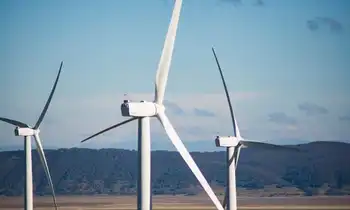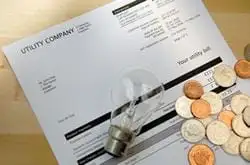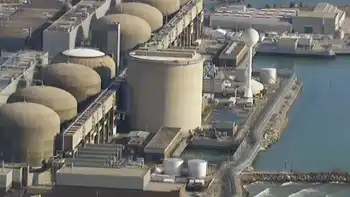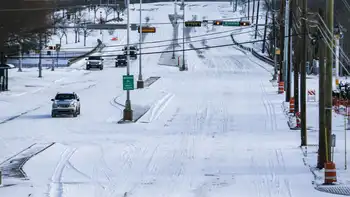Plant leak dates back two years: whistleblower
By WPTZ
CSA Z463 Electrical Maintenance
Our customized live online or in‑person group training can be delivered to your staff at your location.

- Live Online
- 6 hours Instructor-led
- Group Training Available
State officials said the e-mail claims that leaking underground pipes carrying radioactive fluids at the Vernon plant were first discovered two years ago and never reported to authorities. Utility regulators said the claims are true, but are now exploring them further with help from the state attorney general's office.
The tip, from a person who claims to be a VY employee, and alleges Yankee employees were told to patch the leaking pipe rather than shutdown the power plant to make permanent repairs.
The scenario is eerily similar to the one unfolding over the last six weeks around the 38-year old reactor, which has touched off concern statewide and is threatening VY's application for license renewal.
Public Service Commissioner David O'Brien told members of the Senate Finance Committee "it's concerning if accurate," adding "we're certainly going to find out." O'Brien urged the Senate to postpone next week's scheduled vote on whether to authorize continued plant operation so that a variety of ongoing investigations and reports into different aspects of license extension can be completed.
He noted the VY reliability study requested by the Legislature isn't yet finished, nor have Vermont utilities completed negotiations over a future power price agreement.
"There's quite a bit we can learn in the next few days or weeks about these issues which could resolve some discomfort," O'Brien said.
Green Mountain Power, and Central Vermont Public Service Corporation, Vermont's largest electric utilities, also asked Senators to wait.
"We really think it deserves more time for studies and work to play out before voting on a bill of this magnitude," said Brian Keefe of CVPS.
Entergy Vice-President Kenneth Theobalds spoke only briefly to the committee. "It's clear a hasty vote will deprive you of the information to make the right choice." He made no mention of the whistleblower's allegation, nor hint at the company's strategy should the Legislature reject the 20-year plant extension.
But several senators said they have received numerous messages from constituents who are uncomfortable with keeping Vermont Yankee open much longer. Some environmental groups have urged members to flood the Statehouse with calls telling Senators how they feel about relicensing.
The plant is scheduled to shutdown when its 40-year license expires on March 21, 2012. Yankee has requested a 20-year license extension, a request pending before the Nuclear Regulatory Commission, normally the sole authority to approve or deny a nuclear plant's relicensing. But Vermont law also gives the Legislature the power to weigh in on continued operation.
Democrat Peter Shumlin, the Senate president, announced the Senate "has the responsibility to vote" on the question, and said it would happen (soon). No state has ever blocked a U.S. nuclear plant from relicensing. Also, Republican Gov. Jim Douglas told reporters he had just spoken with Gregory Jaczko, chairman of the Nuclear Regulatory Commission, who told Douglas he would "closely review any action" taken in Vermont.
"I'd bet ultimately there will be some litigation," Douglas said, should the Legislature block Yankee's relicensing, something a range of critics say is more than justified. They point to the age of the plant, recent admissions that Entergy misled state officials in 2008 and 2009 over the existence of underground pipes at the plant, and the company's insistence on spinning off ownership of Yankee plant to highly-leveraged new enterprise called Enexus.











